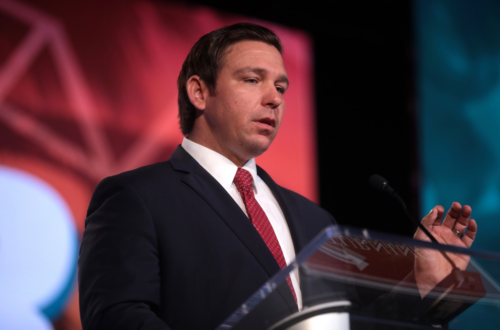The Florida Legislature agreed April 27 on a $101.5 billion state budget. The budget, covering funding for everything from public schools to Everglades restoration, includes nearly a $10 billion increase in spending from the 2020-2021 fiscal year.
An increase of such magnitude seemed unfathomable last year as COVID-19 rocked the Florida economy.
While both the House’s initial spending plan of $97.1 billion and the Senate’s initial proposal of $95 billion in spending passed on April 7, neither plan included funds available from the Biden administration’s American Rescue Plan.
The preliminary report allocated roughly $10.23 billion to both Florida’s state and local governments. The GOP-controlled legislature agreed to only utilize $6.7 billion of the funds provided this fiscal year, holding nearly $3.6 billion in reserves.
This decision and other decisions made on how to spend the relief funds, particularly the choice not to include funding for health care programs, have been criticized by Democrats.
Sen. Kelli Stargel, R-Lakeland, has supported GOP efforts concerning relief money. Although the federal aid is not going directly to health care programs, she noted, the cuts to Medicaid as well as other health programs have been reversed due to this increase in federal funding.
This will mark another year Florida fails to expand Medicaid for low-income residents and families. Democrats have spent the past few years advocating for Medicaid expansion, a goal that increased in significance during the COVID-19 public health crisis. Florida continues to be one of the few states yet to do so.
The Florida GOP emphasized the importance of federal funding being funneled into infrastructure projects. Arguing that these projects will not only hopefully help bring about an economic rebound, but as they require one-time funding, they will not continually rely on federal funds that are also a one-time occurrence.
Overall, the state budget for the 2021-2022 fiscal year includes a number of significant changes to previous years’ breakdowns.
In regard to education, $550 million was dedicated to increasing starting salaries for public school teachers. This marks the continued effort by Gov. Ron DeSantis, R-Florida, to push starting salaries for educators to $47,500. In addition, $215.7 million from the federal aid is allocated to go toward $1,000 bonus payments for all K -12 teachers and principals.
First responders, such as paramedics and firefighters — professions that were especially impacted this past year — are also set to receive $1,000 bonuses, initially set to total around $208 million.
A number of state workers who currently receive low pay rates will see a salary boost to $13 an hour as minimum wage rates are set to raise to $15 an hour in the following years. This increase constitutes a $43 million initiative spearheaded by Florida Senate President Wilton Simpson, R-Trilby. DeSantis will also receive $1.2 million to increase the salaries of state agency leaders.
A total of $36 million is set to revamp the online unemployment benefits portal. This modernization comes as the substantial use this past year highlighted inefficiencies and significant issues. Democrats also failed to succeed in raising the weekly unemployment benefits from $275 to $375 as they had desired.
As for specific state programs, marketing for the Visit Florida tourism entity will see an increase in funding of $25 million from last year, totaling $75 million overall.
This year’s state budget also allocated a large amount of funding to environmental causes. Everglades restoration is set to receive over $1 billion, including a $56 million funding increase approved Monday. An additional $500 million is set to go to the Resilient Florida Trust Fund, a fund tied to addressing sea-level rising and subsequent flooding.
Another significant program to receive funding is the African American Cultural and Historic Grant. Set to receive $30 million, this funding will go to highlighting African American culture in Florida.
Overall, $1 billion is set for emergency preparedness and response in an effort to prepare Florida for future disasters, a plan that originated in the House.
The Florida House passed the budget 117-1, with two legislators not voting. It passed the Senate 39-0, with one legislator not voting. Florida’s regular legislative session ended April 30.
The increased budget, with both some wins and losses for Democrats and Republicans, will hopefully be able to accurately address the unique issues facing Florida in the coming year.
Stargel, when asked about the budget, stated “I think it has us prepared for the future…it is a good budget, everyone has worked together.”
Check out other recent articles from Florida Political Review here.
Featured Image: Florida House Chamber, State Capitol. Unmodified photo by Steven Martin used under a Creative Commons license. (https://bit.ly/3h7OO3s)





